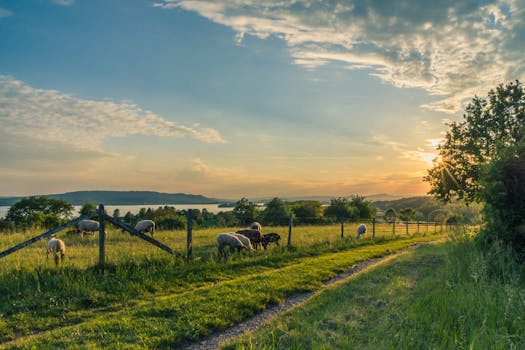Partition Actions: Farms and Rural Land
“My grandparents had a farm. They died without a will and had four children. I was the youngest, and two of my siblings died with children and without a will. What do I do?” This is how a new client talk starts when the subject is partition actions about a farm in Maryland. With rural properties, family farms are passed down generations without legal planning, leaving the next generation to unwind ownership without the benefit of proper probate. It is easy to have dozens of heirs after two generations, with some working the property day to day, and some so not even be known if they are still alive. Usually, this means a partition action is necessary.
When ownership is split, two bad things happen. First, no one feels responsible to pay the taxes on the property, and it is lost to tax sale and foreclosure. Second, one person in the family sells their interest to a determined (and perhaps unscrupulous) investor, and that person uses their purchase to steamroll everyone else. 
For me (Dirk Schwenk), it is always a thrill to represent a member of a farm family in reuniting the farm property, or at least locking down a part of the farm for themselves and future generations. How is this done? A combination of negotiation and use of the partition process to compel owners to make difficult decisions. I previously wrote about partition of property in this article: https://baylawllc.com/maryland-partition-actions/.
Maryland law provides that one owner of a property can compel other owners to either split the property up, or to sell the property instead of dividing it. Most rural and farm properties can be divided in a way that is fair to the parties. Under the law, “A circuit court may decree a partition of any property…. If it appears that the property cannot be divided without loss or injury to the parties interested, the court may decree its sale and divide the money” § 14-107.
Resolution
In partition, a Court divides the property (or the receipts of the sale) according to the interests of the parties. For large families with several generations, one owner to have a 50% interest, while everyone else has a small fraction. This creates possibilities for resolution. A suit for partition will bring everyone to the table, and smaller interests may find it beneficial to be bought out instead of fighting for a small part of the whole. Alternatively, if there is a space for small lots to be carved out, those lots may be exchanged for resolution of ownership on the main farm property. Either result is better than questionable ownership with the possibility of a claim for profits or contribution.
Bottom line: someone has to take control of a farm property under split ownership. If it isn’t a member of the family, it may be the State (after tax sale) or an outsider that purchased a minority interest. The party that gets organized, knows their rights, and takes action will be the most likely to succeed.
Dirk Schwenk is a Maryland Real Estate and Property Lawyer from Annapolis, Maryland. He provides civil litigation in real estate issues, contract disputes, environmental and zoning issues, adverse possession and boundary disputes. He graduated cum laude from the University of Maryland School of Law in 1997 and has been in private practice in Maryland ever since.